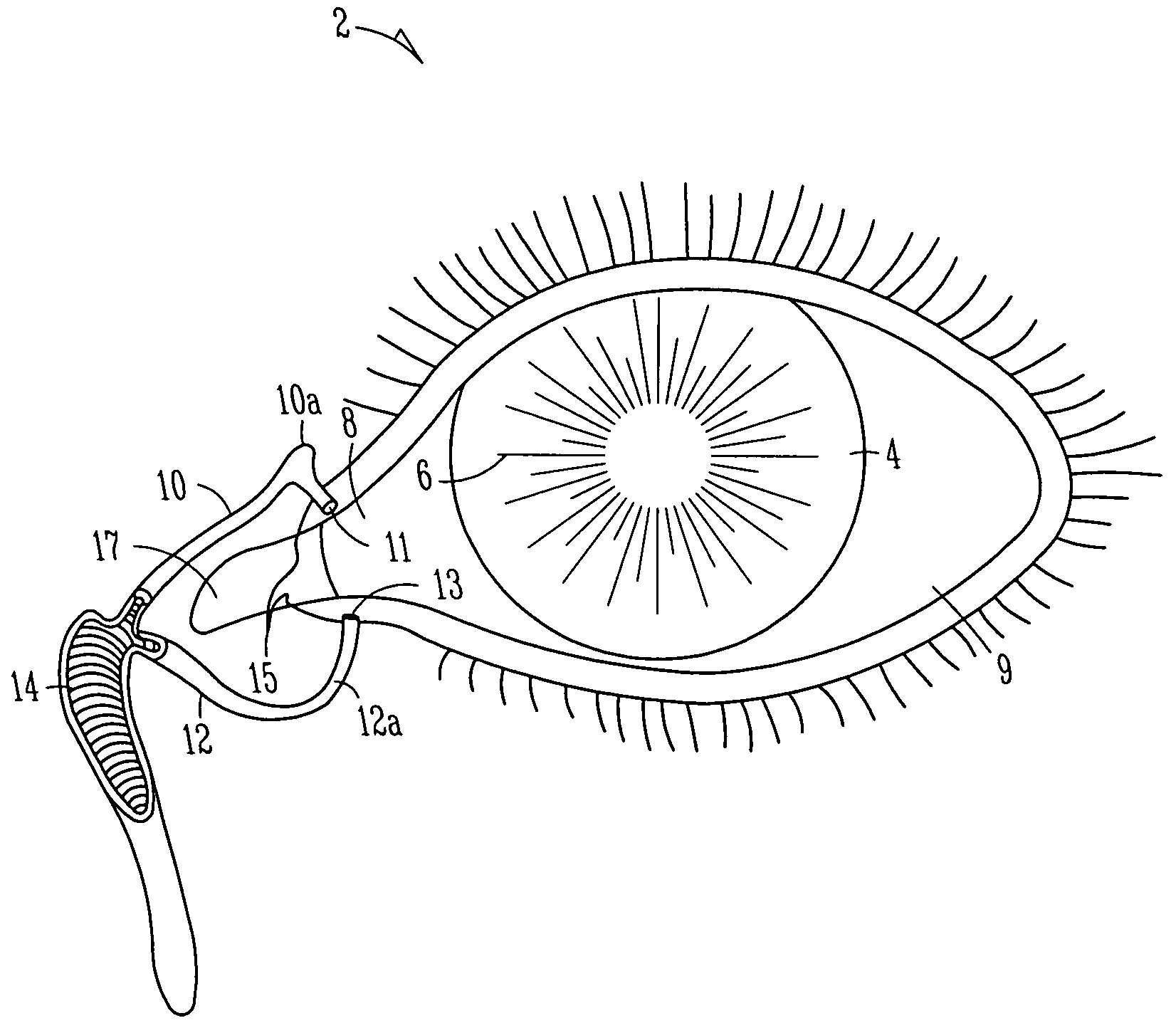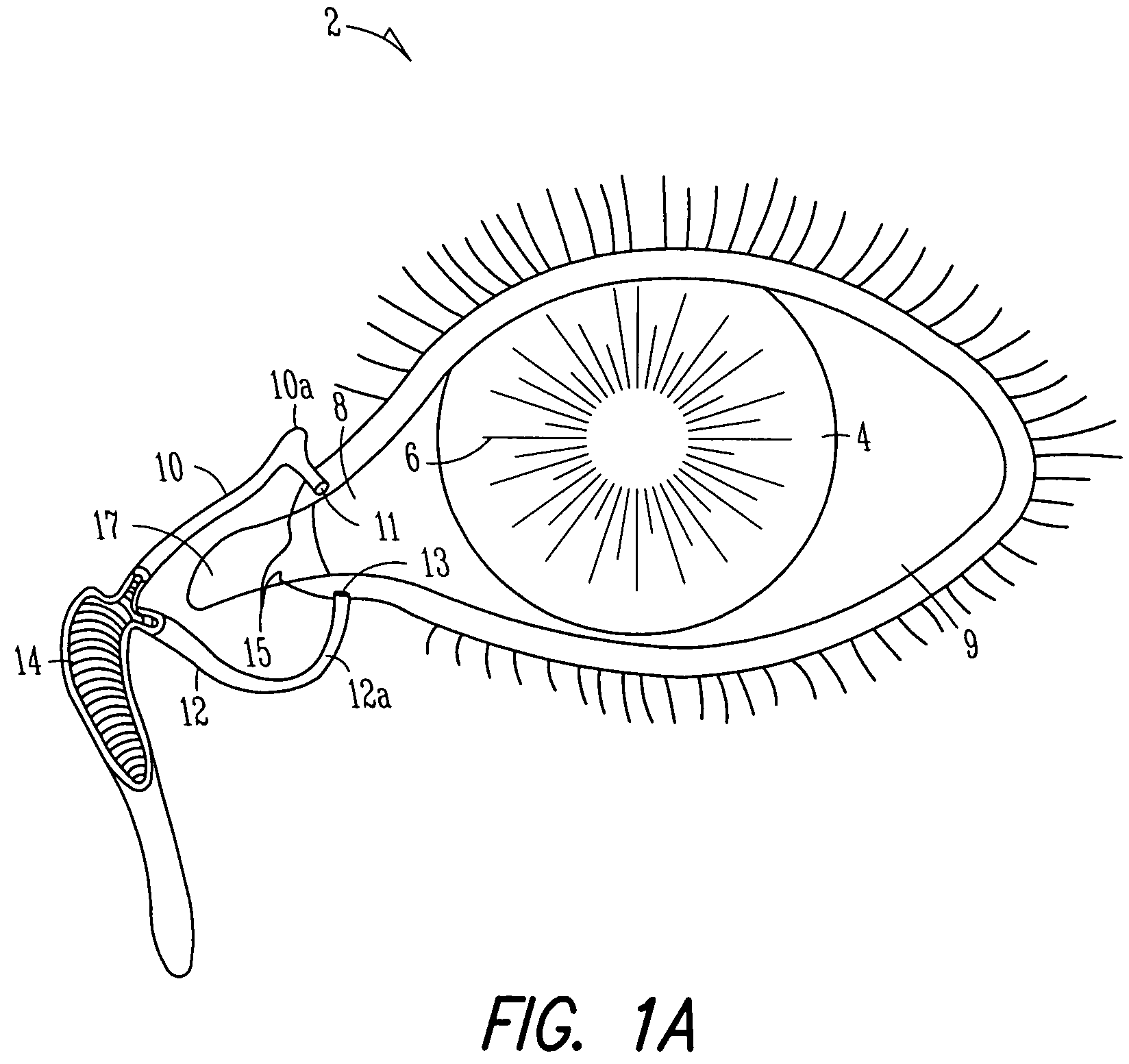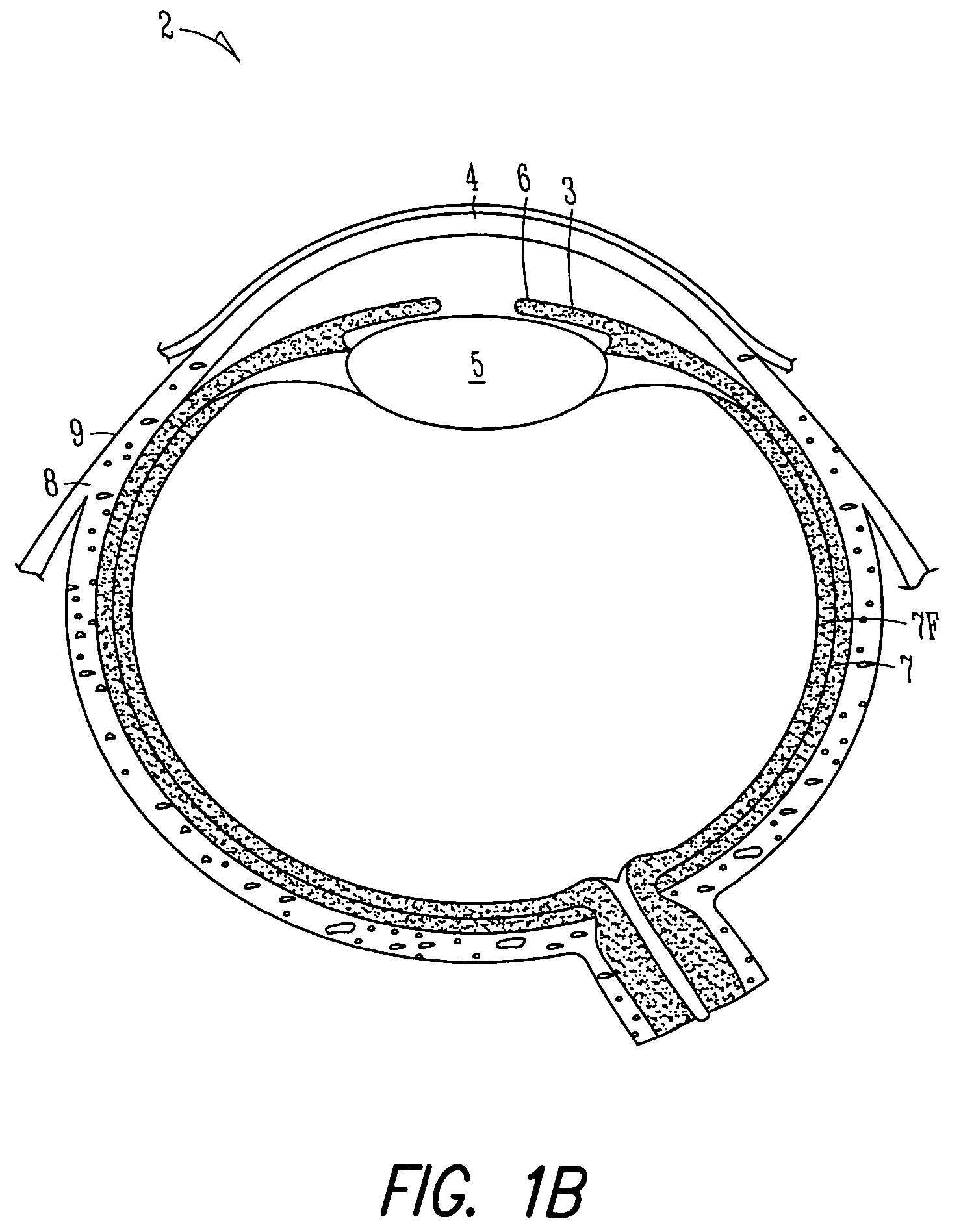Insertion and extraction tools for lacrimal implants
- Summary
- Abstract
- Description
- Claims
- Application Information
AI Technical Summary
Problems solved by technology
Method used
Image
Examples
Embodiment Construction
[0095]FIGS. 1A and 1B show anatomical tissue structures of an eye 2 suitable for treatment with implants, according to an embodiment of the present invention. Eye 2 includes a cornea 4 and an iris 6. A sclera 8 surrounds cornea 4 and iris 6 and appears white. A conjunctival layer 9 is substantially transparent and disposed over sclera 8. A crystalline lens 5 is located within the eye. A retina 7 is located near the back of eye 2 and is generally sensitive to light. Retina 7 includes a fovea 7F that provides high visual acuity and color vision. Cornea 4 and lens 5 refract light to form an image on fovea 7F and retina 7. The optical power of cornea 4 and lens 5 contribute to the formation of images on fovea 7F and retina 7. The relative locations of cornea 4, lens 5 and fovea 7F are also important to image quality. For example, if the axial length of eye 2 from cornea 4 to retina 7F is large, eye 2 can be myopic. Also, during accommodation, lens 5 moves toward cornea 4 to provide good...
PUM
 Login to View More
Login to View More Abstract
Description
Claims
Application Information
 Login to View More
Login to View More - R&D
- Intellectual Property
- Life Sciences
- Materials
- Tech Scout
- Unparalleled Data Quality
- Higher Quality Content
- 60% Fewer Hallucinations
Browse by: Latest US Patents, China's latest patents, Technical Efficacy Thesaurus, Application Domain, Technology Topic, Popular Technical Reports.
© 2025 PatSnap. All rights reserved.Legal|Privacy policy|Modern Slavery Act Transparency Statement|Sitemap|About US| Contact US: help@patsnap.com



